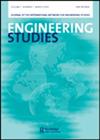Archive as Laboratory: Engaging STEM Students & STEM Collections
IF 1.3
3区 工程技术
Q2 EDUCATION, SCIENTIFIC DISCIPLINES
引用次数: 1
Abstract
ABSTRACT As STEM students come to populate undergraduate courses in the liberal arts to fulfill university distribution requirements, they outnumber their humanities counterparts. A history professor and archivist working at a university that predominantly produces STEM majors have partnered to teach these students by utilizing the special collections related to engineering, innovation, and discovery in classroom work and assignments. This Critical Participation article presents the model of the ‘archive as laboratory’ to facilitate critical inquiry, introduce archival literacy to scientists and engineers, and expand students’ concept of information sources. Students gain an understanding that research questions can be addressed through multiple kinds of evidence that the archives is uniquely situated to provide. The immersive learning experience is enhanced by coursework that incorporates foundational theories and approaches from Science & Technology Studies. The lab model engages the archive as a hands-on workspace and a place where students can practice research skills. Engaging the archive as a laboratory fosters inquiry and critical thinking, and connects histories of innovation, problem identification, and design practice to students’ own majors and their future careers. It is relevant when a problem requires original solutions not found in existing manuals, textbooks, or online platforms.档案作为实验室:吸引STEM学生和STEM收藏
随着STEM学生进入文科本科课程以满足大学的分配要求,他们的人数超过了人文学科的学生。一位在一所主要培养STEM专业学生的大学工作的历史教授和档案保管员合作,通过在课堂作业和作业中利用与工程、创新和发现相关的特殊收藏来教授这些学生。这篇批判性参与文章提出了“档案作为实验室”的模式,以促进批判性探究,向科学家和工程师介绍档案素养,并扩展学生对信息来源的概念。学生们了解到,研究问题可以通过档案所提供的多种证据来解决。课程结合了科学与技术研究的基础理论和方法,增强了沉浸式学习体验。实验室模型将档案作为一个动手的工作空间和一个学生可以练习研究技能的地方。将档案作为一个实验室,培养探究和批判性思维,并将创新、问题识别和设计实践的历史与学生自己的专业和未来的职业联系起来。当一个问题需要在现有手册、教科书或在线平台中找不到原始解决方案时,它是相关的。
本文章由计算机程序翻译,如有差异,请以英文原文为准。
求助全文
约1分钟内获得全文
求助全文
来源期刊

Engineering Studies
ENGINEERING, MULTIDISCIPLINARY-HISTORY & PHILOSOPHY OF SCIENCE
CiteScore
3.60
自引率
17.60%
发文量
12
审稿时长
>12 weeks
期刊介绍:
Engineering Studies is an interdisciplinary, international journal devoted to the scholarly study of engineers and engineering. Its mission is threefold:
1. to advance critical analysis in historical, social, cultural, political, philosophical, rhetorical, and organizational studies of engineers and engineering;
2. to help build and serve diverse communities of researchers interested in engineering studies;
3. to link scholarly work in engineering studies with broader discussions and debates about engineering education, research, practice, policy, and representation.
The editors of Engineering Studies are interested in papers that consider the following questions:
• How does this paper enhance critical understanding of engineers or engineering?
• What are the relationships among the technical and nontechnical dimensions of engineering practices, and how do these relationships change over time and from place to place?
 求助内容:
求助内容: 应助结果提醒方式:
应助结果提醒方式:


